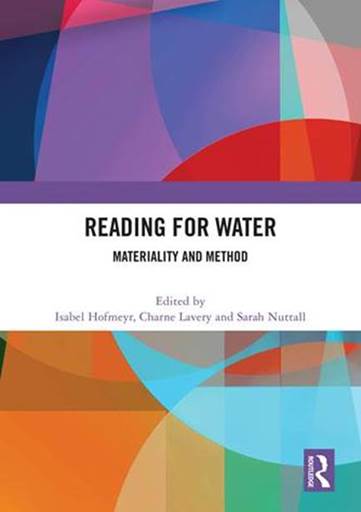Reading for Water: Materiality and Method edited Isabel Hofmeyr, Charne Lavery and Sarah Nuttall

WiSER and the Oceanic Humanities for the Global South projectare pleased to announce the publication of Reading for Water: Materiality and Method (Routledge, 2023).
The book, edited by Isabel Hofmeyr, Charne Lavery and Sarah Nuttall, has appeared in the last few weeks and follows a widely read and cited special issue of Interventions: International Journal of Postcolonial Studies in 2022.
It offers new directions for literary and cultural studies in South and southern Africa, drawing water into the frame of analysis more fully than ever before. Written almost entirely by Africa-based scholars, the book offers a politics and a method as it reads, and re-reads, for water. It shows in the first instance that although the land question has, and continues to be, central to South African political discourse, water too has long been a vector of dispossession and inequality. Bringing water into the frame deepens, rather than detracts from, understandings of the afterlives of colonial violence.
Secondly, the book develops incipient methods for following the waters of the region, in texts and beyond them. It follows rivers, rain, streams, tunnels and sewers; connects atmospheric, surface and ground water; describes competing hydrological traditions and hydro-epistemologies. It proposes new literary regions defined less by nation and area than by coastlines, river basins, monsoons, currents and hydro-cosmologies. It demonstrates how reading for water moves laterally, vertically and contrapuntally between different water-worlds and hydro-imaginaries. In so doing, it illuminates literary spaces as proprioceptive, volumetric and ambient. These methods draw on an emerging range of elementally inclined critical approaches developing in different parts of the world today. While building on these, this collection brings them into conversation with southern African literatures and ecologies, drawing out new genealogies and configurations.
Reading for Water offers a strong locus for African South scholarship, and emerges from sustained work in the Oceanic Humanities (www.oceanichumanities.com), now extended inland, based at WiSER. It is available for online orders, offers a valuable teaching resource and a substantive set of inflection points within its field and beyond.
